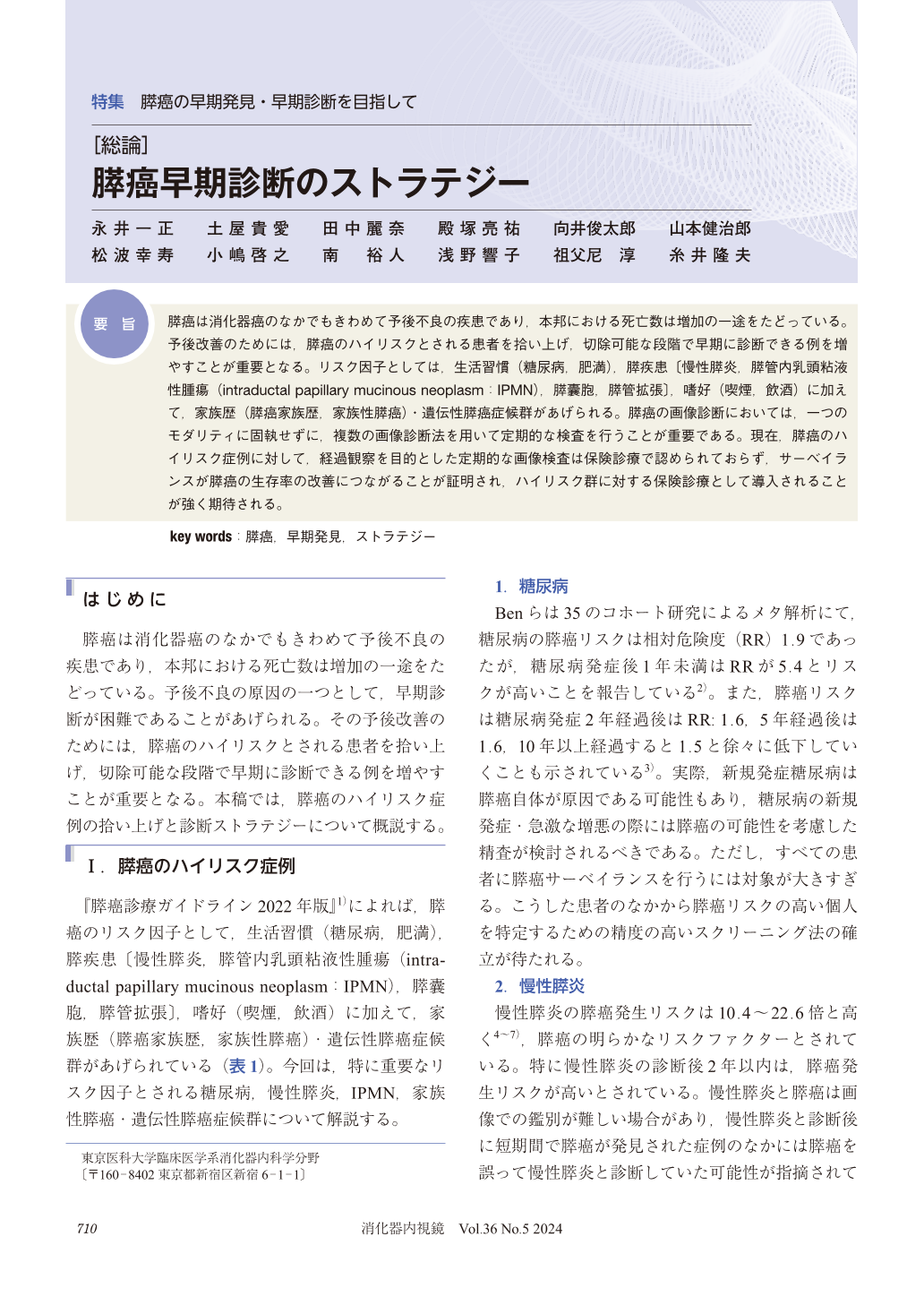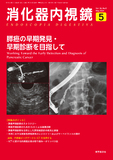Japanese
English
- 有料閲覧
- Abstract 文献概要
- 1ページ目 Look Inside
- 参考文献 Reference
要旨
膵癌は消化器癌のなかでもきわめて予後不良の疾患であり,本邦における死亡数は増加の一途をたどっている。予後改善のためには,膵癌のハイリスクとされる患者を拾い上げ,切除可能な段階で早期に診断できる例を増やすことが重要となる。リスク因子としては,生活習慣(糖尿病,肥満),膵疾患〔慢性膵炎,膵管内乳頭粘液性腫瘍(intraductal papillary mucinous neoplasm:IPMN),膵囊胞,膵管拡張〕,嗜好(喫煙,飲酒)に加えて,家族歴(膵癌家族歴,家族性膵癌)・遺伝性膵癌症候群があげられる。膵癌の画像診断においては,一つのモダリティに固執せずに,複数の画像診断法を用いて定期的な検査を行うことが重要である。現在,膵癌のハイリスク症例に対して,経過観察を目的とした定期的な画像検査は保険診療で認められておらず,サーベイランスが膵癌の生存率の改善につながることが証明され,ハイリスク群に対する保険診療として導入されることが強く期待される。
Pancreatic cancer, notorious for its poor prognosis, continues to see rising mortality rates in Japan. Improving outcomes hinges on early detection in high-risk individuals, allowing for timely diagnoses when surgical resection is possible. Key risk factors encompass lifestyle issues like diabetes and obesity, pancreatic diseases such as chronic pancreatitis, intraductal papillary mucinous neoplasm (IPMN), cysts, and ductal dilation. Genetic factors, including a family history of pancreatic cancer and hereditary syndromes, also play a crucial role.
The diagnostic approach emphasizes the use of multiple imaging modalities over time. However, current insurance policies do not cover regular imaging surveillance for high-risk groups. There is a strong expectation in the medical field that future research will validate the effectiveness of periodic surveillance in enhancing survival rates, leading to its inclusion in insured treatments for those at high risk. This shift towards regular monitoring represents a significant change in managing pancreatic cancer, focusing on early intervention to reduce its high morbidity and mortality.

© tokyo-igakusha.co.jp. All right reserved.


